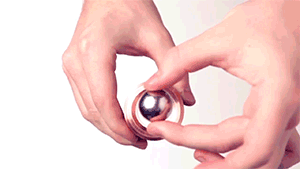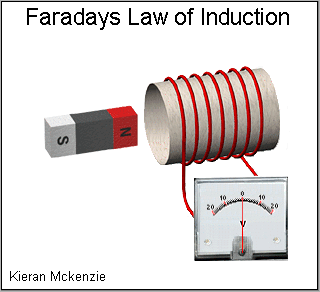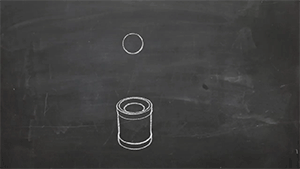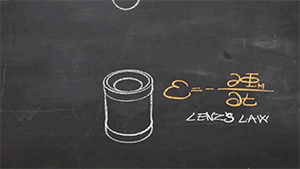I’d Imagine That Takeshi Kovacs Wearing His Hello Unicorn Backpack Will Be A Popular Cosplay/Halloween

I’d imagine that Takeshi Kovacs wearing his Hello Unicorn backpack will be a popular cosplay/Halloween costume this year.
More Posts from Sancolo010 and Others
There is no reason to fear ghosts, ever. Either they can hurt you or they can’t. If they can’t, then the best they can do is the occasional scare. And if they can hurt/kill you, then you’re a ghost too now and it’s fucking on.








Goodbye Twelfth Doctor!
“Doctor, I let you go.”




this semester, my goal is to study as hard as Rory Gilmore wish me luck.
When you see it, REBLOG IT.
Depression Hotline: 1-630-482-9696
Suicide Hotline: 1-800-784-8433
LifeLine: 1-800-273-8255
Trevor Project: 1-866-488-7386
Sexuality Support: 1-800-246-7743
Eating Disorders Hotline: 1-847-831-3438
Rape and Sexual Assault: 1-800-656-4673
Grief Support: 1-650-321-5272
Runaway: 1-800-843-5200, 1-800-843-5678, 1-800-621-4000
Exhale: After Abortion Hotline/Pro-Voice: 1-866-4394253
If you ever want to talk: My Tumblr ask is always open.
300 Basic German Words
This vocabulary list is based on this post by @funwithlanguages !
Please let me know if you find any mistakes that I should correct :)
First Verbs
1. to be: sein
2. there is: es gibt
3. to have: haben
4. to do: tun / machen
5. to go: gehen
6. to want: wollen
7. to can: können
8. to need: brauchen
9. to think: denken
10. to know: wissen
11. to say: sagen
12. to like: mögen
13. to speak: sprechen
14. to learn: lernen
15. to understand: verstehen
Conjunctions
1. that (as in “I think that…”): dass
2. and: und
3. or: oder
4. but: aber
5. because: weil
6. though: aber
7. so (meaning “therefore”; e.g. “I wanted it, so I bought it”):also
8. if: wenn
Prepositions
1. of: von, aus, vor, über, nach
2. to: zu, bis, nach, an, auf
3. from: von, ab, aus, vor
4. in: in, auf, bei, an
5. at (a place): in, an, bei, auf, zu, über
6. at (a time): um
7. with: mit
8. about: über
9. like (meaning “similar to”): (so ähnlich) wie
10. for: für, zu
11. before (also as a conjunction): bevor
12. after (also as a conjunction): nachdem
13. during: während
Question Words
1. who: wer
2. what: was
3. where: wo
4. when: wann
5. why: warum, wieso
6. how: wie
7. how much: wie viel
8. which: welcher,s
Adverbs
1. a lot: viel
2. a little: ein bisschen
3. well: gut
4. badly: schlecht
5. only: nur
6. also: auch
7. very: sehr
8. too (as in “too tall”): zu
9. too much: zu viel
10. so (as in “so tall”): so
11. so much: so viel
12. more (know how to say “more … than …”): mehr (als)
13. less (know how to say “less … than …”): weniger (als)
14. as … as … (e.g. “as tall as”): genauso wie
15. most: meiste
16. least: wenigste
17. better: besser
18. best: am besten
19. worse: schlechter
20. worst: am schlechtesten
21. now: jetzt
22. then: dann, damals
23. here: hier
24. there: da
25. maybe: vielleicht
26. always: immer
27. usually: normalerweise
28. often: oft
29. sometimes: manchmal
30. never: nie
31. today: heute
32. yesterday: gestern
33. tomorrow: morgen
34. soon: bald
35. almost: fast
36. already: schon, bereits
37. still: immer noch
38. even: sogar
39. enough: genug
Adjectives
1. the, a (technically articles): der, die, das; ein, eine
2. this: dieser, diese, dieses
3. that: der, die, das / jener, jene, jenes
4. good: gut
5. bad: schlecht
6. all: alle
7. some: manche
8. no: nein
9. any: irgendein
10. many: viele
11. few: wenig, wenige
12. most: meiste
13. other: andere
14. same: selbe
15. different: anders
16. enough: genug
17. one: einer
18. two: zwei
19. a few: ein paar
20. first: erste
21. next: nächste
22. last (meaning “past”, e.g. “last Friday”): letzte, z.B. "letzten Freitag"
23. last (meaning “final”): letzte
24. easy: einfach
25. hard: schwierig
26. early: früh
27. late: spät
28. important: wichtig
29. interesting: interessant
30. fun: spaßig (to be fun: Spaß machen)
31. boring: langweilig
32. beautiful: schön, hübsch
33. big: groß
34. small: klein
35. happy: glücklich
36. sad: traurig
37. busy: beschäftigt
38. excited: aufgeregt
39. tired: müde
40. ready: fertig
41. favorite: Lieblings-
42. new: neu
43. right (meaning “correct”): richtig
44. wrong: falsch
45. true: wahr
Pronouns
1. I: ich
2. you: du (formal: Sie)
3. she: sie
4. he: er
5. it: es
6. we: wir
7. you (plural): ihr (formal: Sie)
8. they: sie
Nouns
1. everything: alles
2. something: etwas
3. nothing: nichts
4. everyone: jeder
5. someone: jemand
6. no one: niemand
7. (name of the language you’re studying): Deutsch :)
8. English: Englisch
9. thing: das Ding
10. person: die Person
11. place: der Ort
12. time (as in “a long time”): die Zeit
13. time (as in “I did it 3 times”): ein Mal
14. friend: der Freund
15. woman: die Frau
16. man: der Mann
17. money: das Geld
18. country: das Land
19. (name of your home country): z.B. England
20. city: die Stadt
21. language: die Sprache
22. word: das Wort
23. food: das Essen
24. house: das Haus
25. store: das Geschäft, der Laden
26. office: das Büro
27. company: die Firma
28. manager: der Manager
29. coworker: der Mitarbeiter
30. job: der Job
31. work (as in “I have a lot of work to do”): die Arbeit
32. proble: das Problem
33. question: die Frage
34. idea: die Idee
35. life: das Leben
36. world: die Welt
37. day: der Tag
38. year: das Jahr
39. week: die Woche
40. month: der Monat
41. hour: die Stunde
42. mother, father, parent: die Mutter, der Vater, das Elternteil (pl. die Eltern)
43. daughter, son, child: die Tochter, der Sohn, das Kind
44. wife, husband: die (Ehe-)Frau, der (Ehe-)Mann
45. girlfriend, boyfriend: die Freundin, der Freund
More Verbs
1. to work (as in a person working): arbeiten
2. to work (meaning “to function”, e.g. “the TV works”): funktionieren
3. to see: sehen
4. to use: benutzen
5. should: sollen
6. to believe: glauben
7. to practice: üben
8. to seem: Scheinen
9. to come: kommen
10. to leave: verlassen, weggehen
11. to return: zurückkommen
12. to give: geben
13. to take: nehmen
14. to bring: (mit)bringen
15. to look for: suchen
16. to find: finden
17. to get (meaning “obtain”): bekommen, kriegen, erhalten
18. to receive: bekommen
19. to buy: kaufen
20. to try: versuchen
21. to start: anfangen
22. to stop (doing something): aufhören (etw. zu tun)
23. to finish: etw. beenden, fertigmachen
24. to continue: weitermachen
25. to wake up: aufwachen
26. to get up: aufstehen
27. to eat: essen
28. to eat breakfast: frühstücken
29. to eat lunch: zu Mittag essen
30. to eat dinner: zu Abend essen
31. to happen: passieren
32. to feel: fühlen
33. to create (aka “make”): machen, erstellen
34. to cause (aka “make”): verursachen
35. to meet (meeting someone for the first time): jdn. kennenlernen
36. to meet (meaning “to bump into”): jdn. treffen
37. to meet (an arranged meeting): sich mit jdm. treffen
38. to ask (a question): fragen, eine Frage stellen
39. to ask for (aka “request”): nach etw. fragen
40. to wonder: sich fragen
41. to reply: antworten
42. to mean: meinen
43. to read: lesen
44. to write: schreiben
45. to listen: zuhören
46. to hear: hören
47. to remember: sich erinnern
48. to forget: vergessen
49. to choose: aussuchen
50. to decide: entscheiden
51. to be born: geboren werden
52. to die: sterben
53. to kill: töten
54. to live: leben
55. to stay: bleiben
56. to change: sich verändern
57. to help: helfen
58. to send: schicken
59. to study: lernen, studieren
60. to improve: verbessern
61. to hope: hoffen
62. to care: sich kümmern
Phrases
1. hello: Hallo
2. goodbye: Tschüss
3. thank you: Danke
4. you’re welcome: Gern geschehen / Gerne
5. excuse me (to get someone’s attention): Entschuldigen Sie
6. sorry: Sorry / Tut mir leid
7. it’s fine (response to an apology): Schon gut
8. please: Bitte
9. yes: Ja
10. no: Nein
11. okay: Okay
12. My name is: Mein Name ist / Ich heiße
13. What’s your name?: Wie heißt du?
14. Nice to meet you.: Schön, dich kennenzulernen
15. How are you?: Wie geht es dir?
16. I’m doing well, how about you?: Mir geht es gut, und dir?
17. Sorry? / What? (if you didn’t hear something): Bitte? / Was?
18. How do you say ______? : Wie sagt man _____?
19. What does ______ mean?: Was bedeutet _____?
20. I don’t understand.: Ich verstehe (das) nicht.
21. Could you repeat that?: Könntest du das wiederholen?
22. Could you speak more slowly, please?: Könntest du etwas langsamer sprechen, bitte?
23. Well (as in “well, I think…”): Naja / Also
24. Really?: Wirklich? / Echt?
25. I guess that: Ich schätze dass
26. It’s hot. (talking about the weather): Es ist warm / heiß.
27. It’s cold. (talking about the weather): Es ist kalt.


Faraday’s Law of Electromagnetic Induction
The ball (also a magnet) is falling quite a bit slower than expected (despite the slow motion). This can be attributed to Faraday’s Law:
When a conductor is exposed to a changing magnetic field there is a current created within the conductor. Or more technically a magnetic flux changing over time produces an electromotive force across a conductor.


That’s not the whole explanation though…
Lenz’s Law
When the magnet is falling the current in the cylinder is producing a magnetic field as well. Lenz’s Law states:
The induced current will produce a new magnetic field that will oppose the change in magnetic flux.
The produced field applies a force to the magnet resisting its fall. If the tube is long enough the magnet will reach a constant velocity because the magnetic force and weight will cancel each other out (no net force).
This works like air resistance on a falling object. Eventually the resistance completely counters the gravitational acceleration of the object.
Faraday’s and Lenz’s Laws basically tell us that the faster the magnet moves the more the conductor (tube) will resist the magnet’s fall.


Watch this Veritasium video on the same concept and see this phenomenon in real time.

this sign left no survivors
When I’ve given up fighting those demons in my head and started to get along with them:

-
 shahandy liked this · 3 years ago
shahandy liked this · 3 years ago -
 marvelnerd15 liked this · 3 years ago
marvelnerd15 liked this · 3 years ago -
 coolroadhairdooaf liked this · 3 years ago
coolroadhairdooaf liked this · 3 years ago -
 katune1390 liked this · 5 years ago
katune1390 liked this · 5 years ago -
 rumble-and-roar liked this · 6 years ago
rumble-and-roar liked this · 6 years ago -
 happpydaisies liked this · 6 years ago
happpydaisies liked this · 6 years ago -
 radioactivepigeons liked this · 6 years ago
radioactivepigeons liked this · 6 years ago -
 wclftrap liked this · 6 years ago
wclftrap liked this · 6 years ago -
 forever-use-your-imaginatio-blog liked this · 6 years ago
forever-use-your-imaginatio-blog liked this · 6 years ago -
 prostheticthinking liked this · 6 years ago
prostheticthinking liked this · 6 years ago -
 now-i-see-you-now-i-won-t reblogged this · 6 years ago
now-i-see-you-now-i-won-t reblogged this · 6 years ago -
 buckystilinski liked this · 6 years ago
buckystilinski liked this · 6 years ago -
 acehomo reblogged this · 6 years ago
acehomo reblogged this · 6 years ago -
 justsmilestuffhappens reblogged this · 6 years ago
justsmilestuffhappens reblogged this · 6 years ago -
 justsmilestuffhappens liked this · 6 years ago
justsmilestuffhappens liked this · 6 years ago -
 ssenza liked this · 6 years ago
ssenza liked this · 6 years ago -
 happynothlit liked this · 6 years ago
happynothlit liked this · 6 years ago -
 grimjackdaw liked this · 6 years ago
grimjackdaw liked this · 6 years ago -
 urmammaisnice liked this · 7 years ago
urmammaisnice liked this · 7 years ago -
 caibo-kaidan reblogged this · 7 years ago
caibo-kaidan reblogged this · 7 years ago -
 auroral-desires reblogged this · 7 years ago
auroral-desires reblogged this · 7 years ago -
 tisseflamme liked this · 7 years ago
tisseflamme liked this · 7 years ago -
 love-lumps-and-fondue liked this · 7 years ago
love-lumps-and-fondue liked this · 7 years ago -
 ezzoh reblogged this · 7 years ago
ezzoh reblogged this · 7 years ago -
 zodiac-mage liked this · 7 years ago
zodiac-mage liked this · 7 years ago -
 zachriel98-blog liked this · 7 years ago
zachriel98-blog liked this · 7 years ago -
 isensmith liked this · 7 years ago
isensmith liked this · 7 years ago -
 likeabadreligion liked this · 7 years ago
likeabadreligion liked this · 7 years ago -
 aomi-nabi liked this · 7 years ago
aomi-nabi liked this · 7 years ago -
 mor7al liked this · 7 years ago
mor7al liked this · 7 years ago -
 seraphmuse reblogged this · 7 years ago
seraphmuse reblogged this · 7 years ago -
 seraphmuse liked this · 7 years ago
seraphmuse liked this · 7 years ago -
 wulvreina liked this · 7 years ago
wulvreina liked this · 7 years ago -
 thexfoils reblogged this · 7 years ago
thexfoils reblogged this · 7 years ago -
 chibivampie liked this · 7 years ago
chibivampie liked this · 7 years ago -
 allmistyandwetwithrain liked this · 7 years ago
allmistyandwetwithrain liked this · 7 years ago -
 cptnbatderp liked this · 7 years ago
cptnbatderp liked this · 7 years ago -
 adsfwgyhc9iime liked this · 7 years ago
adsfwgyhc9iime liked this · 7 years ago -
 lalasartistamagia liked this · 7 years ago
lalasartistamagia liked this · 7 years ago -
 ucnvsrz liked this · 7 years ago
ucnvsrz liked this · 7 years ago -
 benightedchild reblogged this · 7 years ago
benightedchild reblogged this · 7 years ago

